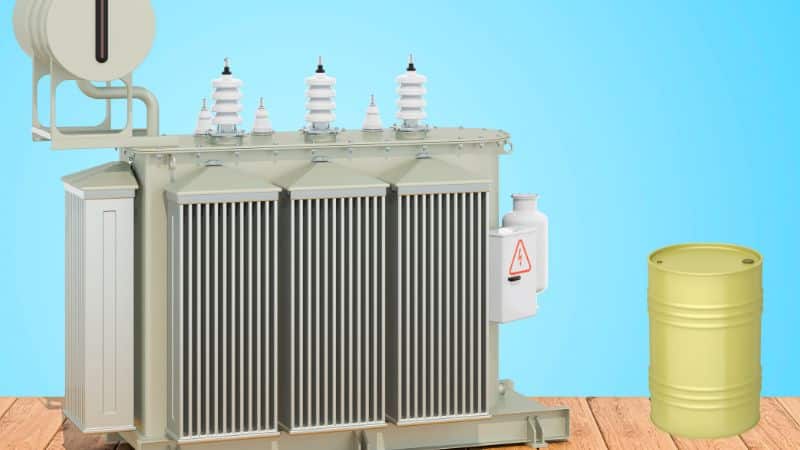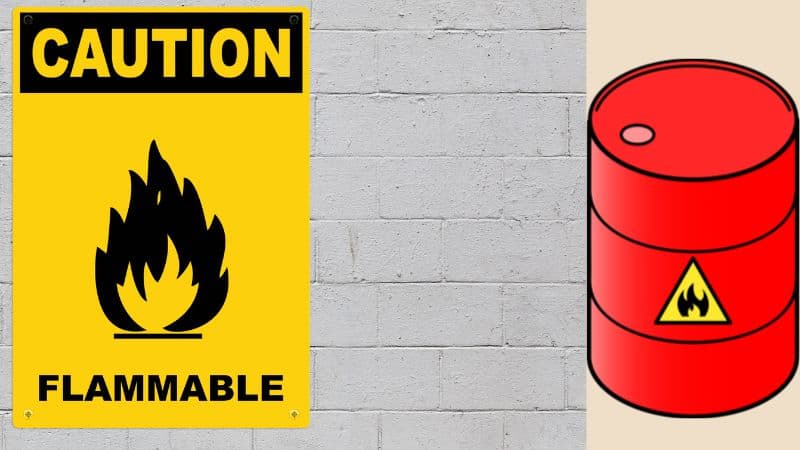Transformer mineral oil has been in use for many years and is a popular choice for transformers. This blog post will discuss everything you need to know about transformer mineral oil. We will discuss & answer all the questions relevant to transformer oil. First of all, you have to know about transformers. Well, the transformer is an electrical device that is used to transform electric energy from one circuit to another one or more, it can also be used to step up or step down the electric voltage.
Now we will also and talk about types, specifications & the price of transformer oil. We will also discuss whether or not transformer oil is toxic.

What is Transformer Oil?
Transformer oil is a type of electrical insulating oil that is used in transformers. Transformer oil helps to keep the transformer cool and prevents it from overheating. Overheating can damage the transformer and cause it to break down. Transformer oil also helps to prolong the life of the transformer.
Types of transformer oil
There are two main types of transformer oil: Paraffin base & naphtha base. On the other hand, naphtha base transformers would be two types, that are, inhibited & uninhibited. Inhibited transformer oil would be two types Type I & type II.
Among the most commonly used ones is naphthenic-inhibited transformer oil because of its better parameter such as pour point, high breakdown voltage capacity, and good thermal cooling capacity. Inhibited Naphthenic transformer mineral oil is also cheap & more available in the market. It is made from simply naphthenic mineral base oil.
But uninhibited transformer oil is additive free which gives high oxidation stability.
Transformer oil specification
There are some common characteristics of mineral base transformer oil. Out of them, some chemical & electrical characteristics are very important to run the transformer. The main basic chemical property of transformer oil is that it can minimize sludge & acidity which is very important for transformer mineral oil. Another mandatory chemical property is water free as transformer oil works as an insulator.
The transformer mineral oil’s physical appearance is clear & transparent.
On the other hand, its main electrical property is dielectric strength which gives effectiveness for insulation.
Now let’s look into the basic typical characteristics of a Standard Transformer mineral oil :
| Characteristics | Value |
|---|---|
| Viscosity at 40°C | (7-11)mm2/s |
| Pour Point | -40 to -45 °C |
| Flash Point | 140 to 150 °C |
| Oxidation Stability at 500 hour | Sludge .18 % wt Neutralization value .005 mgKOH/g |
Is Transformer Oil Toxic?
No, transformer oil is not toxic. However, it is important to keep transformer oil away from children and pets, as it can be harmful if ingested. If you suspect that your child or pet has ingested transformer oil, please contact a medical professional immediately.
Is transformer oil Flammable?
Yes, transformer oil is flammable. In fact, one of the main uses of transformer oil is to help prevent fires in electrical transformers. However, transformer oil is not explosive, so it will not cause an explosion if it catches fire.

As you can see, there are a lot of things to consider when it comes to transformer mineral oil. However, by understanding the basics of this type of oil, you can make sure that your transformer stays in good condition for years to come.
Read Also: Is Synthetic Oil Flammable?
How do I test transformer oil?
There are a few different ways to test transformer oil. One way is to use a transformer oil tester. This device will measure the electrical properties of the oil and tell you if it is still within acceptable limits. Another way to test transformer oil is to take a sample of the oil and send it to a laboratory for analysis.
Transformer Oil Tester:
A transformer oil tester is a device that is used to test the quality of transformer oil. The tester measures the dielectric strength of the oil, which is a measure of the ability of the oil to insulate. The dielectric strength of transformer oil decreases over time, so it is important to regularly test the oil to ensure that it is still of good quality.
Price of Transformer Oil
The price of transformer oil varies depending on the supplier and the quality of the oil. However, you can expect to pay between $30 and $60 for a gallon of transformer oil.
Pros & Cons of using Transformer mineral oil
Pros:
– It is a good insulator and can help to prevent electrical shocks.
– It can help to protect the transformer from overheating.
– It can help to extend the life of the transformer by preventing corrosion.
Cons:
While there are several benefits to using transformer oil, there are also a few disadvantages.
One of the biggest disadvantages is that transformer oil is flammable. If there is a fire near your transformer, the oil could easily catch fire and cause further damage.
Another disadvantage of using transformer oil is that it can be toxic. If you come into contact with transformer oil, it is important to wash your skin immediately and seek medical attention if you feel sick. Inhaling transformer oil can also be harmful, so it is important to keep the area around your transformer well-ventilated.
Despite these disadvantages, many people still choose to use transformer mineral oil because it is a good insulator and can help extend the life of your transformer. If you decide to use transformer oil, it is important to have a transformer oil tester on hand so that you can regularly test the oil and make sure it is still effective. Actually, there are no other options if you have to run an electric transformer.
Final Word:
Transformer oil is a vital part of keeping your transformer running smoothly and safely. If you have any questions about this type of oil or any other transformer products, be sure to ask an expert! Thanks for reading!
